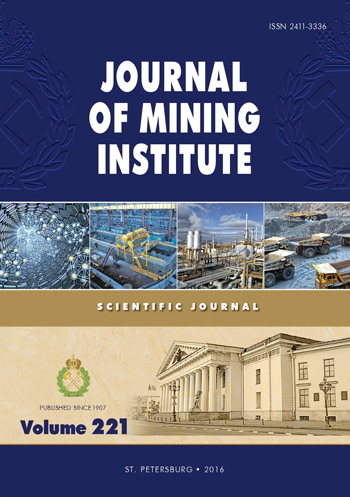On the role of enlightenment in the modern education
- Ph.D., Dr.Sci. professor Saint-Petersburg Mining University
Abstract
The paper analyzes notions ‘education’ and ‘enlightenment’, their commonalities and differences. It is proven that though in ordinary perception these notions are treated as synonyms, from the standpoint of philosophical discourse it is not quite so. It makes sense to understand ‘enlightenment’ as the most profound cultural level of education, cultural maturity of a person (a society), a high level of personal development (both moral and intellectual), mental development, freedom from ignorance and prejudice. Enlightenment is opposed to ‘the smatterers’ (a term introduced by the famous writer), which tends to combine superficial awareness with cultural immaturity and even moral savagery. The paper presents the author’s reflections on promotion of enlightenment in our times and challenges on this path. Each era brings forth its own Enlightenment, its own ideas of education and ignorance, intelligence and stupidity, and eventually of the good and the evil. Enlightenment principles in very general terms may look the same for the 17-18th centuries and for modern times (for example, Descartes principle ‘to doubt everything’), but it is hardly probable that antischolastic, antimedieval nature of this principle is highly relevant for the present days. Many ideas of the New European Enlightenment great by their nature did not with- stand the tough test of the 20th century: blatant idealization of man and social relations was erroneous, and emotional and irrational side of the human nature, its potential propensity to nihilism and destructiveness, to the lust for power and violence was underestimated. Abilities of the mind, justified in scientific knowledge and technology were not justified in moral, political, social, and ideological sense. The ‘light of mind’ as a basis of any Enlightenment turned out to be too faint to illuminate the paths of people and enlighten them despite great achievements in science and technology. The spirit of Enlightenment by the beginning of the 21st century has not yet defeated the spirit of violence, fanatism and irrationalism. Apparently New Enlightenment is needed, which will not just illuminate the path of an imperfect man, but will teach him to live with dignity, skillfully using his own ‘lamp of Diogenes’. Everything said about the role of enlightenment in the modern education has direct implications for the educational process at the St. Petersburg Mining University, the goal of which as recently formulated by the Rector in his address to the associates of the Mining University is not only to train highly qualified specialists, but to raise ‘real Russian intellectuals, distinguished by their high level of education, high moral and ethical standards, decency and nobility of the soul’.
References
- Arnol'd V.I. Is math needed in school? Moscow: MCNMO, 2004, p.30 [in Russian].
- Vasin V.M., Kulik B.A. «Anti-intellectual» Reflections of Two People Living on Different Sides of the Ocean. Moscow: RGO, 2003, р.143 [in Russian].
- Grej D. Commemoration for Education: Per. s angl. Moscow: Praksis, 2003, р.368 [in Russian].
- Dojch D. Enlightenment. Dojch D. Nachalo beskonechnosti: Objasnenija, kotorye menjajut mir: Per. s ang. Moscow: ANF, 2014, p.490-495 [in Russian].
- Kassen B. Effect of Sophistry: Per. s fr. Moscow – St.Petersburg: Univers. kniga, 2000, p.238 [in Russian].
- Brief Philosophical Encyclopedia: Per. s nem. Moscow: Progress-Jenciklopedija, 1994, p.576 [in Russian].
- Krubel'e M. Education. 50/50: Opyt slovarja novogo myshlenija. Ed. by M.Ferro i Ju.Afanas'eva. Moscow: Progress, 1989, p.167-169 [in Russian].
- Kuvakin V.A. Personality and Enlightenment: From Postmodernism to Neomodernism. Moscow: RGO, 2011, p. 200 [in Russian].
- Markov B.V. Science and Living World. Nauka i cennosti. Ed. by M.S.Kagana i B.V.Markova. Leningrad: LGU, 1990, p.179-183 [in Russian].
- Mathematical Enlightenment. Moscow: Gostehizdat, 1957. Iss.1, p.123 [in Russian].
- Migdal A.B. Search for Truth. Moscow: Molodaja gvardija, 1983, p.293 [in Russian].
- Ogurcov A.P., Platonov V.V. Images of Education. Western Philosophy of Education. 20th Century. St. Petersburg: RHGI, 2004. p. 520 [in Russian].
- Ogurcov A.P. Philosophy of Science of the Epoch of Enlightenment. Moscow: IFRAN, 1993, p.213 [in Russian].
- Omel'chuk R.K. Ideals and Idols. St. Petersburg: Vladimir Dal', 2013, p.572 [in Russian].
- From Erasmus of Rotterdam to Bertrand Russell (Problems of Humanism and Freedom). Moscow: Mysl', 1969, p.303 [in Russian].
- Enlightenment. Novaja filosofskaja jenciklopedija: in 4 vols. IFRAN. Moscow: Mysl', 2010, Vol.3, p.366-369 [in Russian].
- Popkov V.A., Korzhuev A.V., Rjazanova E.L. Critical Thinking in the Context of Tasks of Higher Professional Education. Moscow: MGU, 2001, p.168 [in Russian].
- Enlightenment. Filosofskij slovar'. Nacional'nyj mineral'no-syr'evoj universitet «Gornyj»; Sost.: B.Ja.Pukshanskij, A.V.Rybchak. St. Petersburg, 2012, p.53-55 [in Russian].
- Pukshanskij B.Ja. Scientific Knowledge and Scientific Enlightenment in the Contemporary Education. Zapiski Gornogo instituta. 2005. Vol.163, p.144-145 [in Russian].
- Solzhenicyn A.I. The Smatterers. Solzhenicyn A.I. Kak nam obustroit' Rossiju? St. Petersburg: Azbuka, 2015, p.76-113 [in Russian].
- Philosophy of Education. St. Petersburg: SPb filosofskoe obshhestvo, 2002, p.476 [in Russian].
- Fromm Je. Healthy Society. Fromm Je. Zdorovoe obshhestvo. Dogmat o Hriste: Per. s angl. Moscow: AST, 2005, p.6-414 [in Russian].
- Fuko M. What is the Enlightenment? Fuko M. Intellektualy i vlast': Chast' 1: Per. s fr. Moscow: Praksis, 2002, p.335-359 [in Russian].
- Shvyrev V.S. Rationality as the Cultural Value. Tradition and Modernity. Moscow: Progress, 2003, р.176 [in Russian].
- Kurtz P. The New Scepticism: Inquiry and Reliable Knowledge. Buffalo, New York: Prometheus Books, 1992, p.360.
- Russell B. The Art of Philosophizing and Other Essays. New York: Philosophical Library, 1968, p.240.
